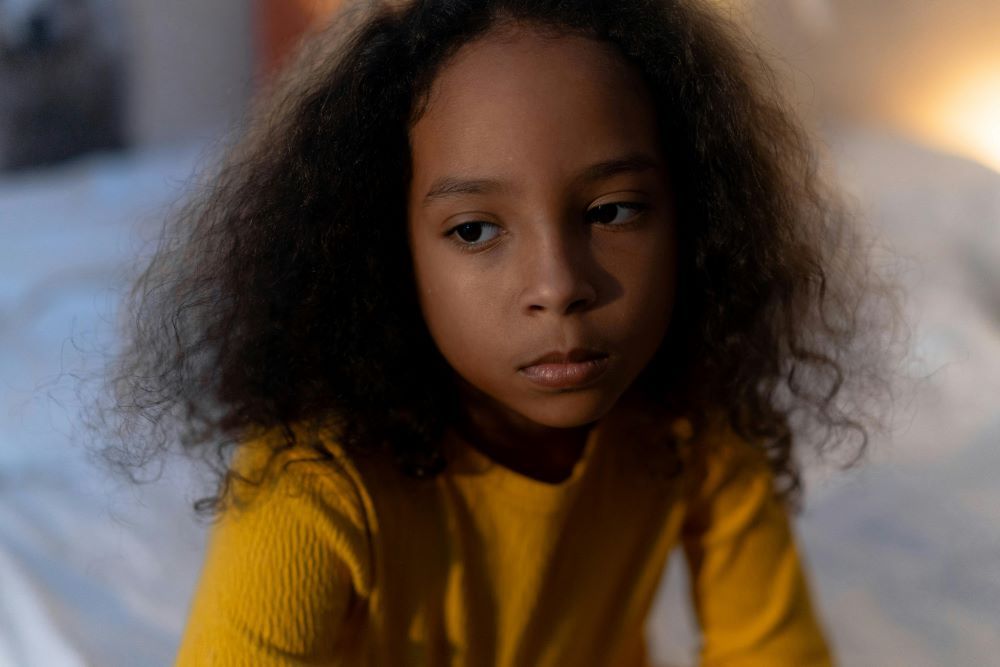Research revealed girls’ mental health was impacted the most during COVID-19.
The coronavirus pandemic has cast a long shadow over the mental well-being of young people, with recent studies indicating that girls have been disproportionately affected. Research published in the journal Academic Emergency Medicine highlights a worrying increase in psychiatric emergencies among children and teens, pointing to a broader mental health crisis exacerbated by the pandemic’s challenges.
The study, which examined emergency room visits at nine hospitals in the United States, found a significant rise in severe psychiatric conditions among the youth, including bipolar disorder, substance abuse, and schizophrenia. Notably, from 2021 to 2022, there was an alarming spike in mental health-related emergency visits among girls, signaling an urgent need for focused attention on their mental health.
Jennifer Hoffmann, MD, MS, an emergency medicine physician at Ann & Robert H. Lurie Children’s Hospital of Chicago and the lead author of the study, emphasized the unique vulnerability of girls during the pandemic period.
This research discusses the ongoing mental health crisis among young people, a concern that has been echoed by health professionals nationwide. Towards the end of 2021, the U.S. Surgeon General described the impact of the pandemic on youth mental health as devastating, with major medical organizations declaring a national emergency in youth mental health.

Further compounding the issue, a study by the U.S. Centers for Disease Control and Prevention in 2022 revealed that more than one-third of high school students reported poor mental health during the pandemic, and one in five had considered suicide. The pandemic also highlighted the prevalence of adverse childhood experiences, with nearly three-quarters of teenagers reporting at least one such experience, which is known to increase the risk of chronic health conditions, depression, anxiety, and suicidal behaviors.
Social isolation, a side effect of pandemic measures, has had a profound impact on teenagers’ mental health. Dr. Jennifer Ashton, ABC News chief medical correspondent and a specialist in obstetrics, gynecology, and obesity medicine, noted the particular vulnerability of this age group due to their developmental reliance on social connections. The immature connections in the prefrontal cortex of teenagers make them particularly susceptible to environmental influences, explaining the negative impact of the pandemic on their mental health.
Mental illness in children and teens can manifest differently than in adults, with symptoms such as social withdrawal, changes in sleep patterns, substance abuse, self-harm, excessive exercise or dieting, and persistent feelings of sadness and hopelessness. Recognizing these signs is crucial for parents and healthcare providers to provide the necessary support and intervention.
The National Institute of Mental Health and the Centers for Disease Control and Prevention stress the importance of prioritizing mental health alongside physical health for children and teens. Schools, medical doctors, psychiatrists, and mental health counselors and psychologists are vital resources for support and treatment. Dr. Ashton encourages parents and caregivers to seek help if they have concerns about a child’s mental health, emphasizing that professional assistance is available and should be utilized to deal with these challenges.
The pandemic has highlighted the critical need for increased awareness, resources, and supportive measures to address the mental health crisis among young people, particularly girls, who have been significantly impacted. It is a collective responsibility to ensure that the mental health needs of the younger generation are met with the same urgency and care as their physical health needs.
Sources:
Girls’ mental health suffered the most during pandemic, data shows
Poor Mental Health Impacts Adolescent Well-being
Why is children’s mental health important?
1 in 3 teens reported poor mental health during pandemic, study finds
Mental Health Emergencies in Kids Were More Severe During the Pandemic


Join the conversation!